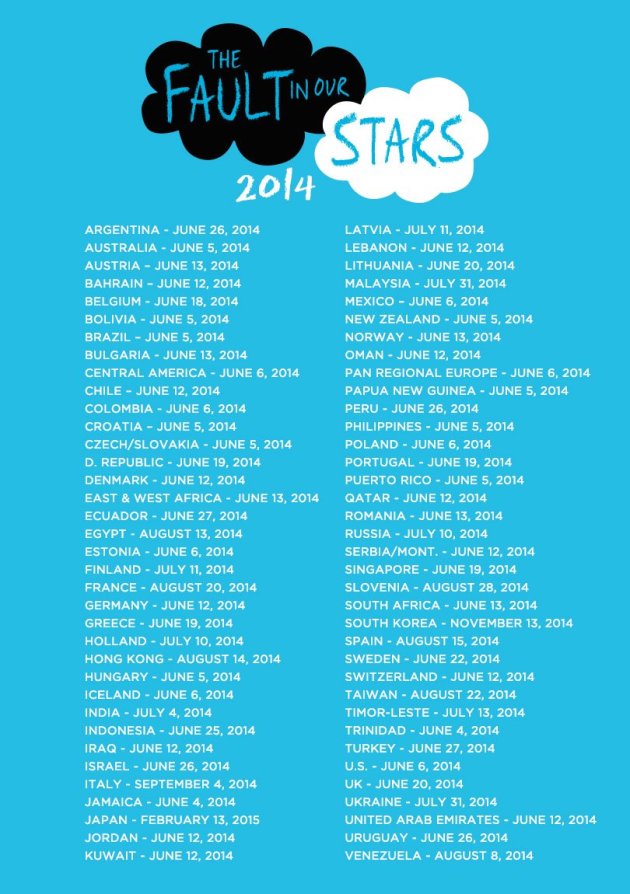
Oh, look! The Fault in Our Stars will come out where I live… in February 2015.
I Read And Love Both Bridget Jone’s Diary and Faulkner’s As I Lay Dying – So What? by Sarah Seltzer for xoJane
If we don’t feel the need to directly compare a catchy, danceable Rihanna song and a difficult art-rock song by St. Vincent, why should we compare a 500-page epic novel with the latest chick-lit tome? Read and let read.
How “Frozen” Took Over the World by Maria Konnikova for The New Yorker
[O]ne theme seemed to resonate: everyone could identify with Elsa. She wasn’t your typical princess. She wasn’t your typical Disney character. Born with magical powers that she couldn’t quite control, she meant well but caused harm, both on a personal scale (hurting her sister, repeatedly) and a global one (cursing her kingdom, by mistake). She was flawed—actually flawed, in a way that resulted in real mistakes and real consequences. Everyone could interpret her in a unique way and find that the arc of her story applied directly to them. For some, it was about emotional repression; for others, about gender and identity; for others still, about broader social acceptance and depression.
What Stonewall Got Right and Occupy Got Wrong by Linda Hirshman for The New Yorker
This Sunday, as every fourth Sunday in June, the streets of New York will fill with prideful marchers celebrating Pride Month. There will be similar marches, too, in cities around the country. Sunday marks the forty-third year since the uprising in a Greenwich Village bar called Stonewall that supposedly started the modern gay revolution. The myth is that a few hundred angry people acted out in lower Manhattan, and the world changed. Maybe that’s where Occupy Wall Street got the idea that this is how it’s done.
Rebel Girls: The Writing that Made a Movement by Carmen Rios for Autostraddle
There are some key writings in the field that are often cited but rarely make it out of the realm of academics — and I think it’s time to change that. In line with the values of this column, I’d like to share some of the formative pieces of this beast we call “women’s studies” with you, which coincidentally is also a great way to observe the changes in language and theory that have impacted its course – and our lives.